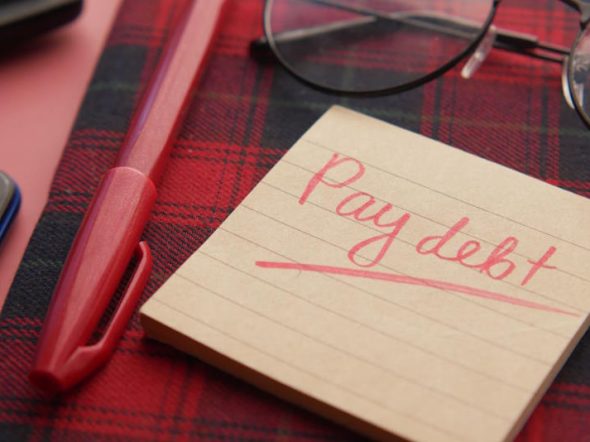Personal loans are installment debt that is repaid with fixed monthly payments. Most of them are unsecured - no collateral needs to be put up in order to qualify - unlike secured mortgage or auto loans which require that collateral is put up upfront.
They typically offer competitive interest rates, flexible repayment terms and quick funding times; however, it is important to know certain details prior to applying. Banks, credit unions and online lenders all provide some form of unsecured loans with various rates, terms and loan amounts available to applicants.
Some of these loans enable prequalifying without adversely impacting credit scores. But on the bright side, unsecured loans don't require collateral like secured loans do; however, they still pose risks that could affect your creditworthiness.
Interest Rates
Assuming they qualify, those with excellent credit and long financial histories will find the most favorable personal loan rates and repayment terms available to them. Borrowers with lower scores might need to accept higher interest rates or shorter repayment terms in order to be approved for one.
Lenders typically consider your credit score, income and debt-to-income ratio (DTI) when determining eligibility for an unsecured personal loan. They'll also take into account how much money you need as well as your borrowing history when making their decision for the beste forbrukslån for you. As your credit history becomes longer and your score falls lower, qualifying will become increasingly challenging for a personal loan.
Associated Fees
Credit cards, student debt consolidation loans and debt refinancing are common types of unsecured loans; however there are also numerous types of personal unsecured loans designed for debt refinancing or large expenses like high interest credit card bills or medical expenses. When taking out such a loan it's important to first check its rate and repayment terms to make sure they fit within your monthly budget.
Unsecured loans usually carry higher interest rates due to the greater financial risk for lenders, yet you may find better offers by shopping around and comparing quotes from multiple lenders. Keep in mind that not all lenders offer equal rates or terms; some have strict eligibility criteria which are difficult to meet while others provide competitive rates with flexible loan terms.

Repayment Periods
Borrowers who seek an unsecured personal loan must possess both steady income and savings to qualify. Lenders may run hard credit checks on potential borrowers to assess risk, and report repayment behavior to credit bureaus for future decisions. Failing to make payments on time could have serious repercussions for your credit score as well as incur additional late payment penalties.
An unsecured personal loan offers several key advantages over its more secured counterparts, such as mortgages. One such benefit of an unsecured personal loan does not have to put your home or other valuable possessions up as security for repayment if an unexpected financial emergency makes repayment difficult.
Since unsecured loans don't carry collateral to back them up, their interest rates often carry higher rates due to more risk for lenders. As a way of compensating, some lenders set strict eligibility requirements that make it hard for borrowers with good credit scores and profiles to secure ones.
Collateral
Depending on the lender, you may be able to check loan rates online without impacting your credit score, making it easy to compare options before selecting an unsecured personal loan. Some lenders even allow pre-qualifying as another way of gauging whether an application will be approved quickly.
Unsecured lending accounts are available from various lenders, including online lenders, banks, and credit unions. Since each lender may require certain qualifications before offering an unsecured personal loan to applicants, it's wise to compare offers before selecting one that provides the best terms.
Borrowers may use unsecured types for various purposes, ranging from consolidating debts to funding vacations. But they should only borrow what is absolutely necessary since late payments can significantly lower a borrower's credit scores. Also make sure your lender offers competitive rates, repayment schedules and flexible terms as this could significantly impact your loan experience.

Credit Score
Your credit score is an integral component in determining eligibility for one, unlike secured loans which require collateral. Instead, these unsecured loans must be repaid with interest on time each month - lenders will use your report to evaluate your payment history and assess risk when lending money.
Your score is calculated based on data reported to three national credit bureaus which includes payment history, balances owed and amounts due; as well as length of credit history and the types of debt you carry - indicators to lenders that you are capable of responsibly managing your debts responsibly.
They typically feature fixed interest rates that make your monthly payments predictable, making them ideal for financing major expenses like weddings or home improvement projects - or consolidating higher-interest debt such as credit card bills.
No matter your credit profile, many online lenders provide them. A personal loan calculator can help you compare rates and terms available from various lenders so you can see your options. Note that lenders will likely run hard inquiries against your credit, which could temporarily decrease it; to maximize success it's wise to apply with multiple lenders until finding one with suitable rates and terms that meets your needs.
While every lender varies in its requirements for qualifying borrowers and setting loan amounts and terms, most follow a standard framework when assessing individuals for loans. Some consider factors like employment history, debt-to-income ratio and other considerations when making this determination.
Income
An unsecured personal loan can be an ideal solution for borrowers in need of funds for purchases, bill repayment, or funding another financial goal. But before applying, there are a few good considerations you need to keep in mind.
Lenders typically evaluate your credit score and debt-to-income ratio to assess whether or not you qualify for an unsecured loan. They want to assess whether you can repay on time, as well as whether or not this type of loan suits your lifestyle needs.
Lenders will also consider your income and expenses when making decisions about loans, so having a steady source of income that can cover your monthly payments, processing fees or late payment penalties and any additional costs related to your new loan should be priority in making decisions about loans. Finally, keep in mind how quickly you require access to funds - many lenders disburse loan amounts within days - in your decision-making process.

Lender’s Requirements
They are loans given out by lenders to qualified borrowers for various purposes, usually at fixed interest rates and repaid on a monthly basis. There may also be origination fees or no collateral needed as security, making them ideal for everything from consolidating debt payments to paying for wedding expenses. Lenders assess your creditworthiness by taking into consideration factors like your credit score, debt-to-income ratio, income level etc.
Many lenders provide prequalification and preapproval services for those interested in applying for them. Prequalification involves conducting a soft inquiry that won't impact your credit score, while pre-approval provides you with an idea of the amount you could potentially borrow. When the time comes to apply for your personal loan application, however, they'll run a hard inquiry which will leave a mark on your report.
When shopping around for them, it's essential to compare rates carefully. Different lenders have differing requirements; you might be amazed at just how competitive some can be! As a rule of thumb, it is recommended that your credit score falls into the "good" to "very good" range in order to gain access to more desirable rates.
Lenders take into account several factors when approving applicants for unsecured personal loans, with your ability to repay it being of primary importance. Failing to do so may lead to collection actions resulting in negative repercussions for your credit score as well as fees and late payment charges accruing against you.
